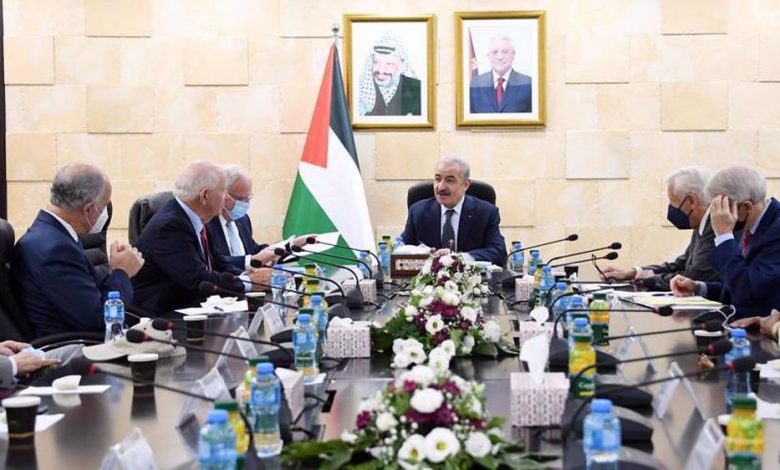Palestinian prime minister calls on US Congress to recognize State of Palestine
Palestinian Prime Minister Mohammad Shtayyeh has called on US Congress to recognize an independent Palestinian state with East al-Quds as its capital, urging Washington to amend laws and regulations that target the Palestinian Authority (PA) as well as the Palestine Liberation Organization (PLO).

During a meeting with a visiting delegation of US congressmen at his office in the central occupied West Bank city of Ramallah on Monday, Shtayyeh discussed the so-called Middle East Peace Process between Palestinians and Israel, amid the Tel Aviv regime’s attempts to wreck prospects for the purported two-state solution through occupation and violation of Palestinians’ rights.
He also asked the Biden administration to honor pledges it made to Palestinians, among them the reopening of the United States consulate in occupied East al-Quds.
Shtayyeh then called upon the US and other Western countries to stop Israel from jeopardizing the Middle East region’s future by insisting on its colonial policies and violations of human rights.
“How can we continue to talk about the [so-called] two-state solution when there are 720,000 settlers on the lands of the Palestinian state, and the settlement program is continuing?” he asked.
“There are 62% of the Palestinian lands under the direct control of Israel, and it deals with it as a geographical reservoir for settlement expansion,” Shtayyeh noted.
The Palestinian prime minister also demanded pressure on the Israeli regime in order to let the PA hold general elections across Palestinian territories, including East al-Quds.
About 600,000 Israelis live in over 230 settlements built since the 1967 occupation of the Palestinian territories of the West Bank and East al-Quds.
Palestinians want the West Bank as part of a future independent Palestinian state, with East al-Quds as its capital. The last round of Israeli-Palestinian talks collapsed in 2014. Among the major sticking points in those negotiations was Israel’s continued settlement expansion.
All Israeli settlements are illegal under international law as they are built on occupied land. The UN Security Council has condemned Israel’s settlement activities in several resolutions.







